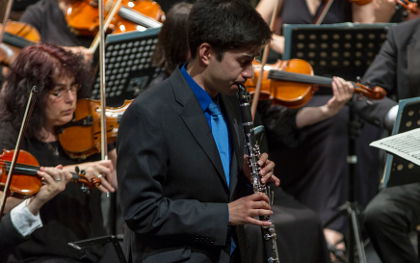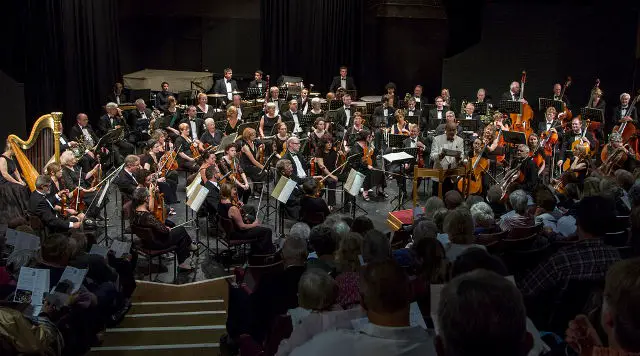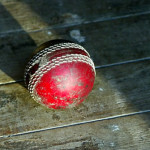Our thanks to Jonathan Dodd for his latest IWSO review of the Isle of Wight Symphony Orchestra. Ed
The Isle of Wight Symphony Orchestra played their last concert of the season last Saturday night at the Medina Theatre.
They started with a bang, launching into a spirited rendition of Borodin’s ‘Prince Igor’ Overture. Borodin is an interesting composer, believed at the time to be the most talented composer in Russia, which included the no-mean-slouches Mussorgsky and Rimsky-Korsakov. He didn’t produce much music though, because he considered himself to be a chemist first. He published papers, and founded a medical school for women doctors.
Much of the music we know was written after he was ‘bullied’ by his friend Rimsky-Korsakov. And after his untimely death at 54, his friends and pupils, particularly Glazunov, salvaged and finished several half-finished pieces. The opera Prince Igor was one of these.
The IWSO performed this splendid overture with panache and enthusiasm and crispness. It made me want to find out what follows in the actual opera, which is exactly what an overture should do.
Come to the Carneval
The second piece was the little-known ‘Carneval in Paris’, by the Norwegian Johan Svendson. Normally known for his nationalistic pieces, this was literally a carnival piece, joyfully describing and illustrating the frivolity and colour of a carnival, themes and tunes energetically echoing and varying throughout.
The orchestra obviously loved this piece, and it showed off the individual talents of many of them as they took it in turns to take the lead. It was exuberant, and it was wonderful to see the happy faces of the musicians afterwards. Definitely a piece to look out for.
The strings fizzing and swirling around him
Gerald Finzi was another somewhat reluctant composer. He spent much of his life growing rare apples, and sometimes spent years completing a piece. His Clarinet Concerto was first performed in 1949, and it shows off the qualities of the clarinet against an orchestra composed entirely of strings.
This can’t be an easy concerto to perform. It requires great skill and dexterity on the part of the soloist, and the orchestra doesn’t always play a supporting role.

Often it seems that they’re playing something different and the soloist has to continue despite them. In a lesser orchestra I might imagine this coming unstuck, but Kimon Parry, the soloist, played throughout with great presence and skill, almost like a captain on the bridge during a storm, soaring above the turmoil of the strings fizzing and swirling around him. It was an excellent performance, beautifully controlled and played by all.
Inspired by London
After the break, the whole orchestra filed in and prepared to perform ‘A London Symphony’ by Ralph Vaughan Williams. Some composers, like Haydn, wrote London Symphonies, often more because that’s where they were written or commissioned or first performed than actually inspired by the place.
Vaughan Williams called it ‘A London Symphony’, because it is inspired by London, although to the musically illiterate like me, there seems to be little in it that would make this obvious.
Vaughan Williams himself seems to have left this to others to interpret. He suggested that it should be thought of as ‘absolute music’ – performed and heard in its own right without reference to anything else. But then later he allowed a conductor to provide very specific programme notes describing each section. Occasionally you can hear the bells of Big Ben, and there were no doubt lots of influences and references to London within it.
I hadn’t ever heard this symphony before, and I hadn’t read the programme notes either, so I was in a state of natural and blissful ignorance and expectation when it started, and I found myself transported, I have no idea where, by the majestic waves of sound and the beautiful harmonies and disharmonies that swirled like the waters of a great river of sound mixed with emotions.
I know that sounds a bit pseudoish, but I haven’t got a better way to describe it.
Absolute Music
Afterwards I was trying to work it out, and I decided that there are different kinds of listening. You can listen to some music and appreciate its artistry and form and the performance and the virtuosity of the players and all that stuff, and you can have a wonderful time, which happens a lot. And then something comes along that sweeps all that away, because you become one with it. I was in that river, being carried along, and I didn’t even know it.
This has only happened to me once before, when I was listening to the Sibelius tone poem ‘Tapiola’ at the only Prom I ever attended. I think it’s one of the powers that music can evoke, and it was there for me that night, when the magnificent Isle of Wight Symphony Orchestra, under the leadership of Jonathan Butcher, took me away somewhere, out of time and out of myself. Absolute music indeed.
It was wonderful. Thank you.
I can’t wait for next season.
The Isle of Wight Symphony Orchestra return in November. See their website for details of how to book your tickets.
Images: © With kind permission of Allan Marsh





